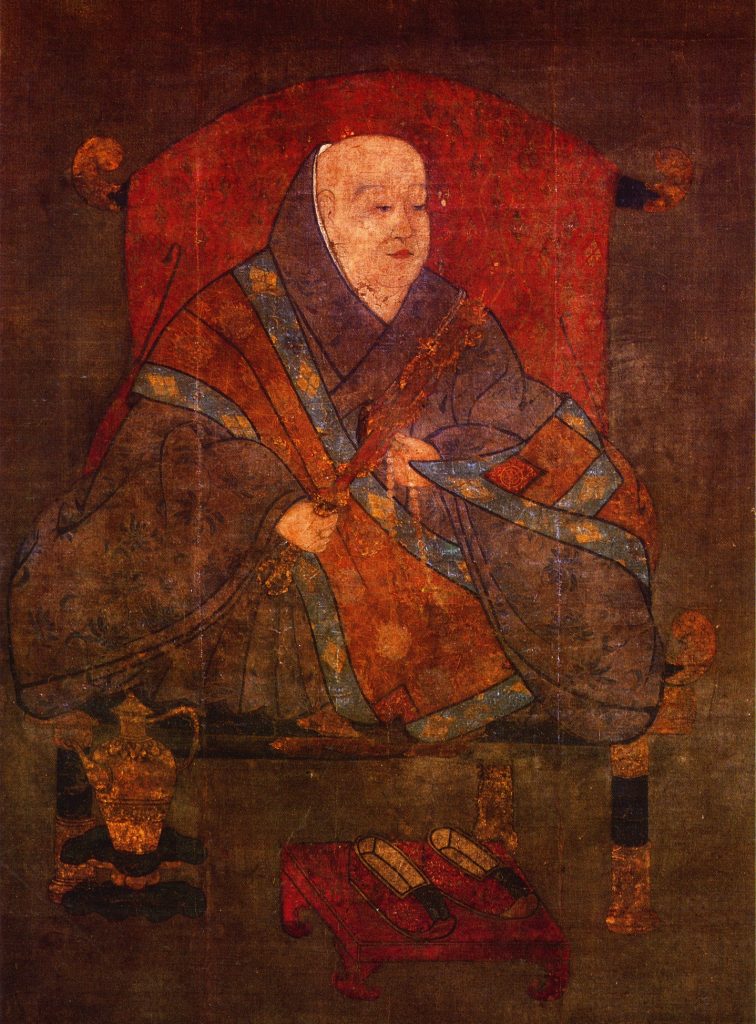Your cart is currently empty!
Like a black dragon above the clouds

Wikipedia
In 887, aged just 21, Emperor Uda succeeded his father, Emperor Kōkō, to become the 59th emperor of Japan—a role he would fill for ten years until making way for his son, Prince Atsuhito. Throughout his decade on the Chrysanthemum Throne, as was tradition amongst the elite of the Japanese Court, Uda kept a diary later known as Uda tennō gyoki (‘Imperial diary of Emperor Uda’), and through this invaluable document—the oldest of all surviving Court diaries—we are offered a unique window into the Heian period. Thanks to this specific entry, written about his dear feline friend on 11th March 889, we also have the first definitive record of a domestic cat in Japan.
The Diary Entry
Now that I have a few spare moments I shall write a description of my cat. This black cat of mine had previously been given to the former emperor by Minamoto no Suguru, the Junior Assistant Governor-General of Dazaifu, upon his return to the capital after completing his term of office. The emperor loved the colour of the cat’s fur, which is truly beyond compare. Other cats are a light black colour, but this cat is dark black like a crow, and very much resembles the Chinese dog “Blackie.”
My cat is a foot and a half in length and about six inches in height. When he curls up he is very small, looking like a black millet berry, but when he stretches out he is long, resembling a drawn bow. The pupils of his eyes sparkle, dazzlingly bright like shiny needles flashing with light, while the points of his ears stick straight up, unwaveringly, looking like the bowl of a spoon. When he crouches he becomes a ball without feet, resembling a round jade taken from the depths of a cave. My cat moves silently, making not a single sound, like a black dragon above the clouds.
By nature he has a preference for Taoist-style health practices and instinctively follows the “five-bird regimen.” He always keeps his head and tail low against the ground. But when he arches his back, he extends some two feet in height. His fur is lustrous, perhaps on account of his Taoist health practices. He is good at catching mice at night, better at it than other cats.
The former emperor enjoyed the cat for several days and then gave him to me. I have cared for him now for five years. Every morning I give him milk gruel. It is not simply that I am impressed by the cat’s many talents; I have felt particularly keen to lavish the utmost care upon him, however insignificant such a creature may really be, because he was given to me by the former emperor. I once said to the cat, “You possess the forces of yin and yang and have a body that is the way it should be. I suspect that in your heart you may even know all about me!” The cat heaved a sigh, raised his head, and stared fixedly at my face, seeming so choked with emotion, his heart so full of feeling, that he could not say a thing in reply.
Further Reading
As far as I’m aware, Emperor Uda’s diary, or however much of it survived, is yet to be translated and published in full. However, some entries can be read in a 1992 paper by Professor Judith N. Rabinovitch and Akira Minegishi, seen here in pdf format.
Diary entry excerpted from “Some Literary Aspects of Four Kambun Diaries of the Japanese Court: Translations with Commentaries of Excerpts from Uda Tenno Gyoki, Murakami Tenno Gyoki, Gonki, and Gyokuyo,” in The Journal of the Humanities, Sec. II, no. 39, Yokohama University (Oct 1992).
Make a Donation
If you’re able, please consider supporting Diaries of Note with a donation.

Leave a Reply